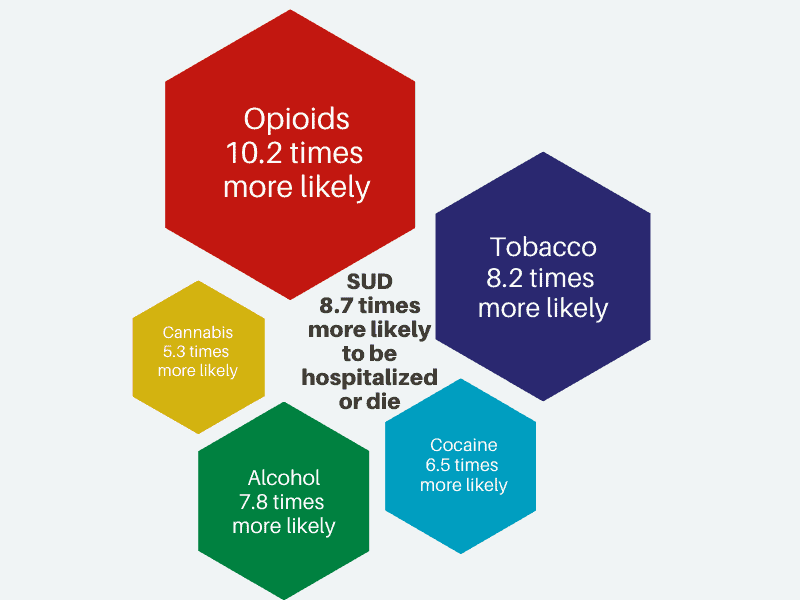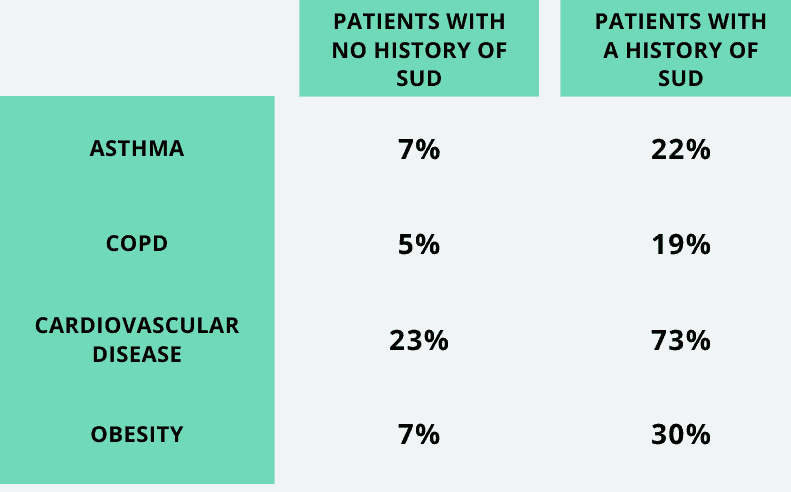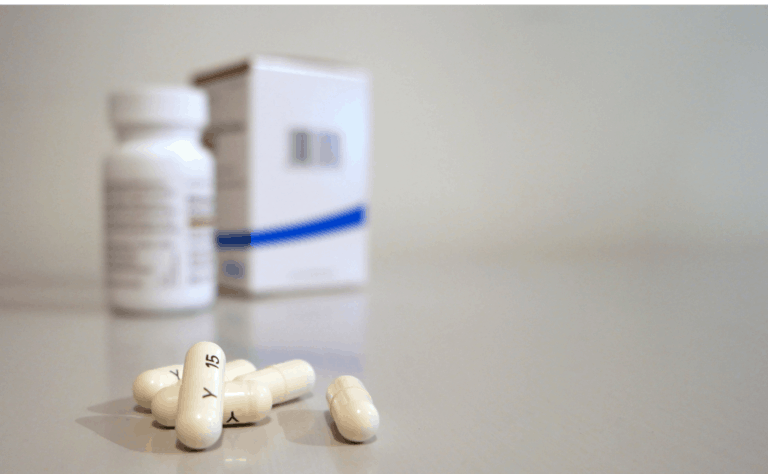A new study shows that opioid users are 10 times more likely to be hospitalized or die after COVID-19 infection, even if it isn’t smoked. Keep reading to learn more.
Just three weeks ago, among another wave of coronavirus cases, the National Institutes of Health (NIH) identified a new group of coronavirus high-risk patients: those with substance use disorder, specifically opioid users.
Their study showed that COVID-19 patients with current or previous substance use disorders have an 11 percent higher chance of being hospitalized and 3 percent higher chance of death. Substances included in the study were tobacco, alcohol, opioids, cannabis, and cocaine.
Researchers analyzed over 73 million patient records and identified over 12,000 cases of COVID-19, of which nearly 1,900 also had a life-time or more recent diagnosis of substance use disorder.
Opioid Users and COVID-19
The difference between a pandemic and an epidemic is simple. An epidemic is contained to one country or region, whereas a pandemic is worldwide. The opioid crisis is an epidemic as it is contained to the U.S. currently. Covid-19 is a pandemic. The highest risk population from the sample was those with opioid use disorder at 10.2 times more likely to be hospitalized or die. Opioid use, including fentanyl, was followed by tobacco at 8.2 times, alcohol at 7.8 times, cocaine at 6.5 times, and cannabis at 5.3 times.
Overall, patients with any type of substance use disorder were 8.7 times more likely to be hospitalized or die from COVID-19 complications.
One thing is certain:
The US is struggling through both an epidemic and a pandemic; this alliance weakens our chances to win either battle.
The study used a snapshot of the patient records data on June 15, 2020. Now, nearly four months deeper into the pandemic, substance use is an ever-increasing concern.
Are you a dependent or addicted opioid user? Your risk for complications from COVID-19 is increased. Begin your opioid addiction recovery today by calling Asheville Recovery Center at (828) 518-6996.
Opioid Epidemic and COVID-19 Pandemic Collide
Several characteristics of substance use and susceptibility to COVID-19 intersect to expound the dangers of both.
An article in the journal Frontiers in Psychiatry examines more closely the dual exacerbation of these characteristics.
- The communal nature of drug and alcohol use (sharing pipes, syringes, etc.)
- Limited access to clean water and soap for proper prevention of infection
- Limited financial resources and decreased access to addiction treatment services
- COVID-19 high-risk health complications caused by substance use disorder
- Increased isolation leading to more severe psychological and withdrawal symptoms
- If in treatment, the decrease in face-to-face interaction important to recovery outcomes
And it’s important to acknowledge the implications of social stigma as it relates to both substance use and infectious disease.
All of this evidence begs the question:
Why are risks so much higher for those with substance use disorders?
The NIH study found that patients with a more recent substance use disorder diagnosis had a higher presence of health conditions that had already been identified as COVID-19 high-risk disorders such as asthma, chronic obstructive pulmonary disease (COPD), cardiovascular disease, chronic kidney or liver disease, type-2 diabetes, hypertension, and obesity.
The risk of hospitalization and death for those with a substance use disorder who contract COVID-19 and already have one of these high-risk diagnoses range from 6 percent to 50 percent increase.
What about opioid users makes them the riskiest population to contract COVID-19?
Keep reading to learn more.
If you or a loved one currently use opioids or has a history of opioid use, be extra careful and follow all COVID-19 protocols. Dial (828) 518-6996 to speak with an Asheville Recovery Center representative to learn more about how we can help.
Opioid-Induced Respiratory Depression and COVID-19
As recent as December of 2019, the Federal Drug Administration (FDA) released a warning that serious breathing difficulties may occur in individuals that are opioid users, prescription or otherwise.
Respiratory depression (hypoventilation) is a breathing disorder characterized by slow and ineffective breathing. It’s assumed that any substance inhaled could lead to respiratory depression, but opioids cause respiratory depression in a more centralized way.
Opioids attack the brain stem which happens to be the mothership of the central nervous system.
Two different systems in the brain stem control breathing. One system oversees involuntary breathing while awake and asleep and also controls adjustments to breathing needed for different tasks like speaking, eating, surprise, anxiety, and pain. The other system monitors the amount of oxygen taken in and the amount of carbon dioxide released.
Essentially, opioid users have an increased chance of having irregular breathing rhythm and skipped breaths.
COVID-19 lung damage often comes from pneumonia that COVID-19 causes. Pneumonia causes the air sacs in the lungs to fill with fluid and limits their ability to take in oxygen.
If the frequency of breaths is reduced and the amount of oxygen taken in is reduced, the two systems affected by opioid use get confused and enter a game of tug of war, and COVID-19 is the referee.
The frightening aspect of this game of tug of war is that it doesn’t matter when the opioid use occurred, the duration, or whether it be prescription therapy or recreational use.
A National Center for Biotechnology Information (NCBI) study revealed that for each year of therapeutic opioid use, the risks associated with breathing problems during sleep increase by 25 percent.
This is also perhaps why the elderly are at even higher risk because of the extensive and long-term use of opioid therapy to treat pain.
Take extra precaution in preventing infection of COVID-19 if you use opioids or have a history of opioid addiction. To seek assistance with your substance use, call Asheville Recovery Center at (828) 518-6996.








